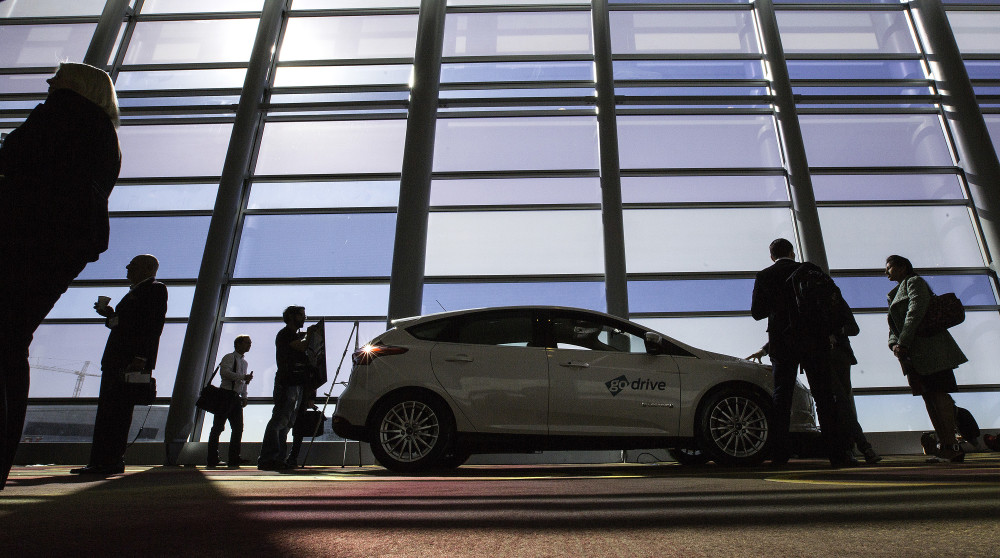By Louis Hansen
Mercury News
WWR Article Summary (tl;dr) Silicon Valley and its software engineers are well-positioned to disrupt the $1 trillion automobile market. The region is home to electric vehicle maker Tesla, the state’s only major auto manufacturing plant, and a growing collection of startups working on autonomous vehicle technology.
SAN JOSE
It doesn’t take a 90-minute commute to figure out that Bay Area transportation needs to change — and fast.
A handful of experts at the annual State of the Valley conference suggested Friday the future of transportation is highly connected, probably electric and maybe shared.
“This is not a small problem to solve,” Michael Uhl, partner at McKinsey & Company, told an audience of business leaders at the event, sponsored by Joint Venture Silicon Valley. Uhl said the auto industry is on the cusp of major changes, similar to the computer market in the 1980s and ’90s.
Transportation investors and entrepreneurs participating in a panel discussion focused on four main areas of rapid change: growing acceptance of electric vehicles, greater connectivity between cars, improvements in autonomous driving, and new ride and vehicle sharing platforms.
“These are game-changers,” Uhl said.
Silicon Valley and its software engineers are well-positioned to disrupt the $1 trillion automobile market. The region is home to electric vehicle maker Tesla, the state’s only major auto manufacturing plant, and a growing collection of startups working on autonomous vehicle technology.
Hookups between manufacturers and tech companies have accelerated. Ford announced last week a $1 billion investment in Argo AI, an artificial intelligence company with Bay Area ties. Last year, GM spent $1 billion on San Francisco-based Cruise.
Patrick Brady, director of Android engineering at Google, said the two cultures can complement each other despite their differences. Silicon Valley pushes for constant innovation, he said, while the auto industry knows supply chains and manufacturing durable parts and complicated vehicles.
Google, a leader in developing autonomous vehicle technology, has worked with many major automakers.
“We’ve formed some really good partnerships,” he said.
Brook Porter, a partner at the venture capital firm Kleiner, Perkins, Caufield & Byers, said vehicle sharing platforms — think Airbnb for cars — will reduce the demand to buy cars. One of his firm’s investments, San Francisco startup Turo, offers a service that connects vehicle owners with prospective renters.
Porter tested it and rented a Tesla Model S. The vehicle’s owner was able to afford the luxury car by renting it out for a few days a month, he said.
“Silicon Valley is really good at turning things into services,” Porter said.
But smarter, safer cars are not the only way to attack growing congestion. Other experts suggested the humble bicycle. Jeffrey Tumlin, a transportation consultant commissioned to study the region’s bike network, said the Bay Area has many advantages to build a robust system — flat roads, good weather and a healthy population.
But the network often breaks down between municipal boundaries. Tumlin cited the overall need for better infrastructure, signs, mapping and regional partnerships.
Joint Venture President Russell Hancock said that the average commuting time for the region’s workers has crept up since 2005. Workers now lose 35 hours annually due to congestion.
“We’re not going to solve this problem,” he said, “by building more freeways.”














































































































































































































































































































































































